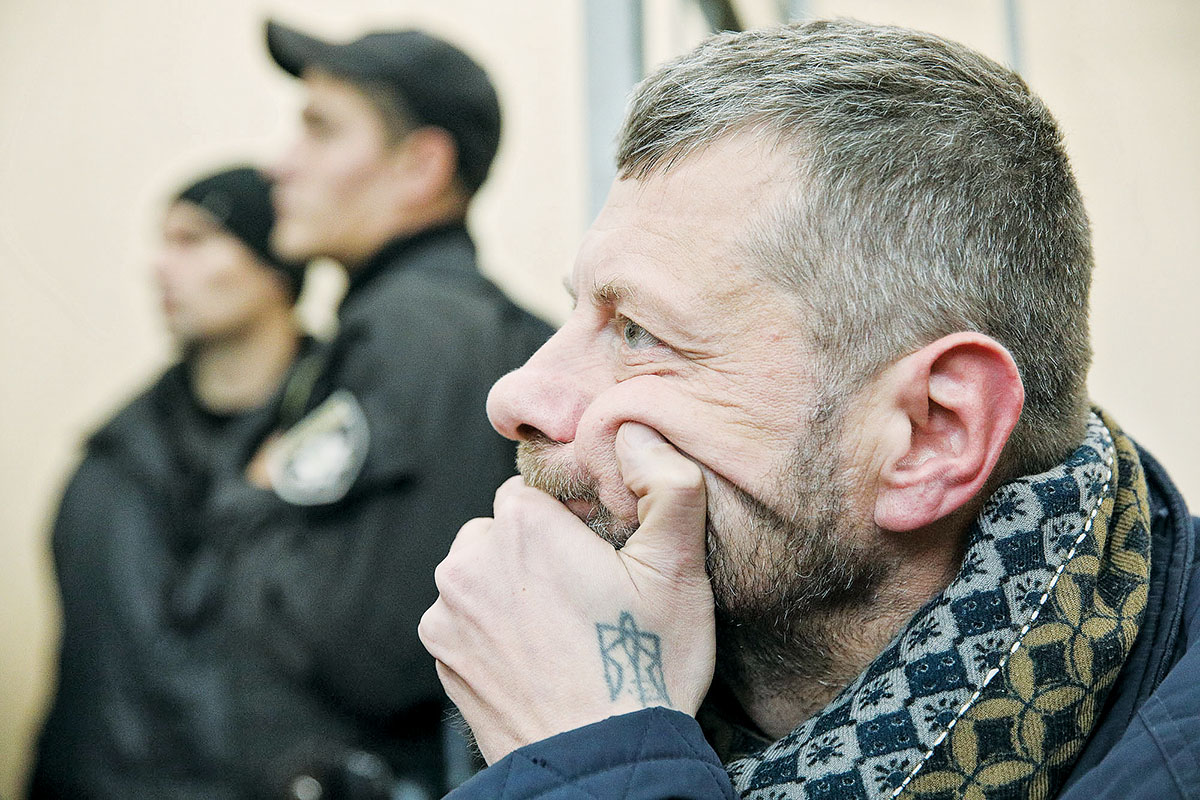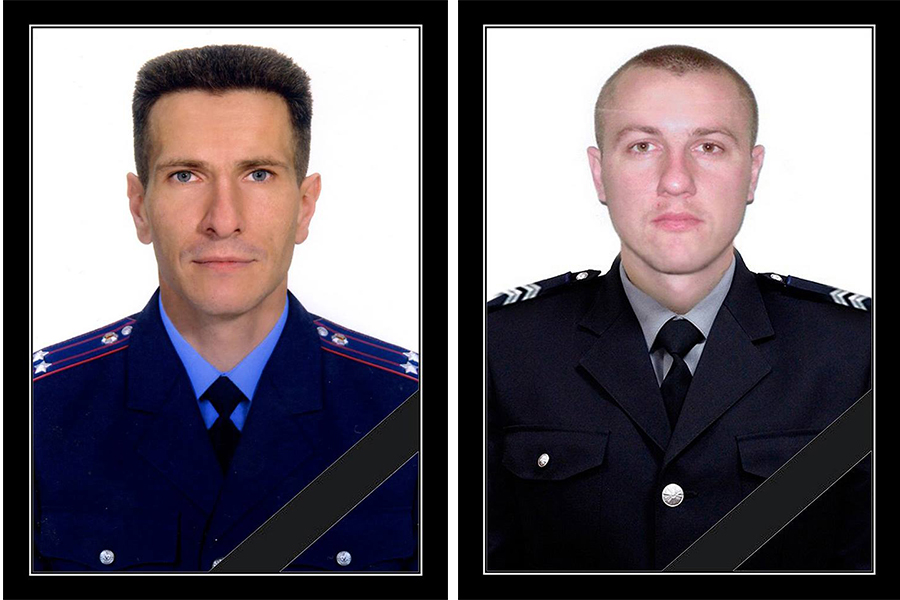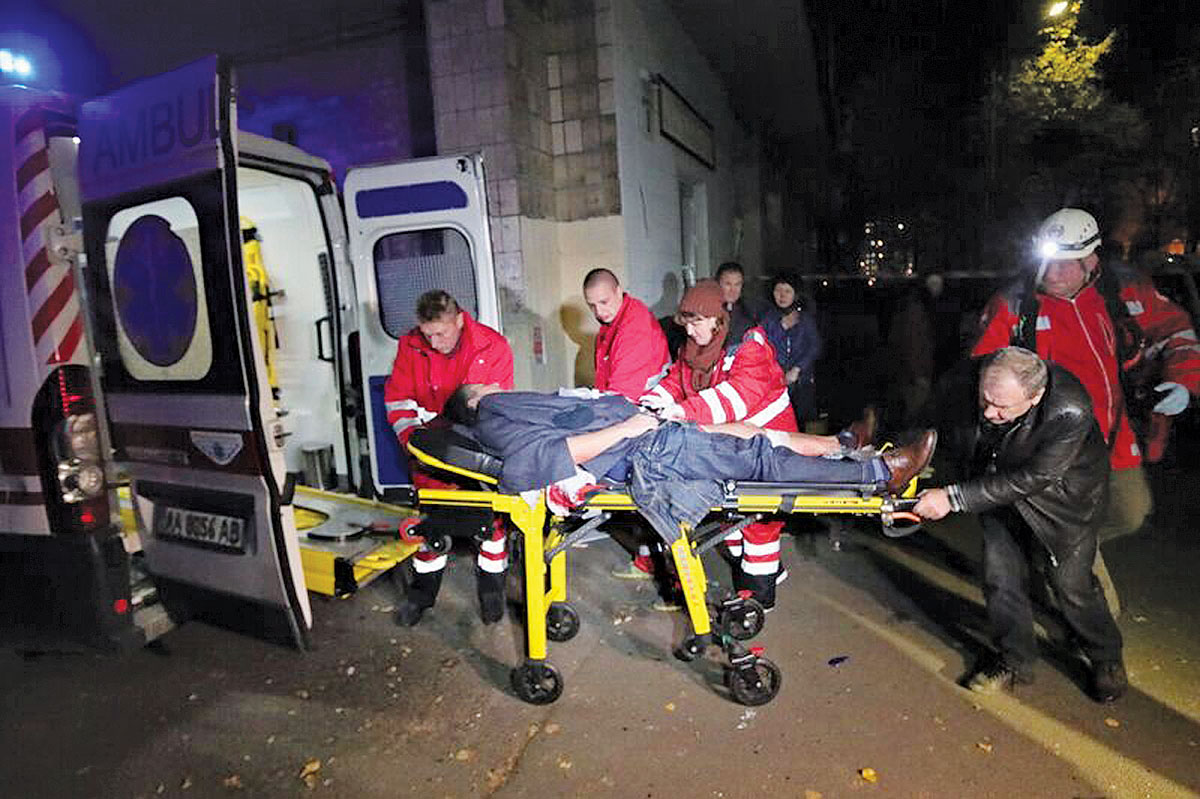As Russia’s war in the Donbas simmers on, Kyiv is becoming an urban battlefield, with car bombings and assassinations occurring with disturbingly greater frequency, conjuring up memories of the wild and violent 1990s of the early independent years following the collapse of the Soviet Union.
The latest bomb attack in Kyiv, on the night of Oct. 25, killed two people and injured three others. The injured included the bomb’s intended target — Ukrainian lawmaker Ihor Mosiychuk of the Radical Party. Political analyst Vitaliy Bala was also injured.
The assassination attempt adds to the spiral of violence and instability that Russia’s war against Ukraine has brought to the country.
According to various theories, the crime was the work of the Kremlin or simply the result of political or business conflicts.
The explosion took place at around 10 p. m. as Mosiychuk and several other people were leaving the studio of the television station Espresso TV in Kyiv’s Solomyanskiy district.
Ukraine’s State Security Service, better known as the SBU, has categorized the incident as a terrorist attack. Officials said that the bomb was planted on a motorbike parked near the exit of the TV station. Video of the blast posted online appears to confirm this report.
Mosiychuk’s bodyguard Ruslan Kushnir, 31, and former Interior Ministry employee Mykhailo Mormil, 36, who was passing by, were killed by the blast.
Kushnir, a former officer of unpopular and now disbanded Berkut riot police, leaves a pregnant wife and a four-year-old daughter. After coming out of surgery, Mosiychuk wrote on Facebook that he is alive thanks to Kushnir.
“Life is not black and white: it turned out that a Ukrainian nationalist, a ‘fascist’ as some call me, was saved by a Berkut (officer). This is a sign that Ukrainians need to unite in the face of a common enemy, and not to seek enemies in one another,” Mosiychuk said.
Mosiychuk’s press service said that the lawmaker was the target of the blast. He was hospitalized but didn’t suffer life-threatening injuries.
Political analyst Bala was hospitalized and required surgery. A female passerby is also in hospital in a critical condition after suffering head injuries.
Experts say such attacks are undermining Ukraine’s image abroad.
“Such terrorist acts are aimed at intimidating people,” says Oleksiy Holobutsky, an analyst at Situations Modeling Agency, a Kyiv political consulting firm founded by Bala, one of the blast’s victims. “In any case, they work to destabilize the situation in the country, regardless of who is the subject of an assassination attempt.”
For Western countries, Holobutsky said, such explosions reinforce conclusions that Ukraine is unstable.

Lawmaker Ihor Mosiychuk attends a hearing on Mykola Kokhanivsky, leader of the OUN Battalion, at Kyiv’s Svyatoshynsky court on Oct. 24. The murder attempt on Mosiychuk could be linked to the conflict between Kokhanivsky, who was backed by Mosiychuk, and Ruslan Kochmala, at whom Kokhanivsky has shot. (Volodymyr Petrov)
Suspected organizers
Pavlo Kononenko, a deputy chief prosecutor of Kyiv, said investigators of the crime were pursuing three lines of inquiry: Russian intelligence services’ involvement, Mosiychuk’s political activities and personal motives.
Mosiychuk himself blamed the Kremlin for the assassination attempt. Oleksandr Danylyuk, an activist who served as an advisor to then-Defense Minister Valeriy Geletey in 2014, said on Oct. 19 that Russian intelligence services were planning to kill a Ukrainian opposition lawmaker.
A related theory is that Chechen strongman Ramzan Kadyrov, an ally of Russian dictator Vladimir Putin, could be involved.
In December 2014, Mosiychuk published a video showing him shooting at Kadyrov’s photo and pledging to help Chechen rebels overthrow Kadyrov.
Mosiychuk’s “puppeteer is based somewhere in Europe or the West,” Kadyrov told Russian television channel Rossiya 1 shortly after Mosiychuk published the video. “They’re sick of him and want to get rid of him and say that Kadyrov did this. They’ll kill him soon unless we get him first.”
Kadyrov also said that either Mosiychuk would apologize, or he, Kadyrov, and his associates would “punish (Mosiychuk) according to his crimes.”
“We don’t miss, and shoot on target when necessary and where necessary,” Kadyrov added. “If there’s a court warrant, we’ll get him, and it doesn’t matter whether he’s in Europe or America.”
Some have blamed Kadyrov for the murder of Chechen-Georgian Ali Timayev, also known as Timur Makhauri, in September and for a murder attempt on his Chechen opponents Amina Okuyeva and Adam Osmayev in June. Both crimes took place in Kyiv.
Kadyrov’s associates have been convicted of killing Russian opposition leader Boris Nemtsov and Kadyrov’s political opponents Sulim Yamadayev and Umar Israilov. Austrian police believe Israilov’s murder was ordered by Kadyrov, which the Chechen leader denies.
Another theory is that the murder attempt on Mosiychuk is linked to a conflict that involves Mykola Kokhanivsky, the leader of the nationalist Organization of Ukrainian Nationalists Battalion.
Mosiychuk defended Kokhanivsky in court after he was detained on Oct. 21 and charged with shooting at Ruslan Kochmala, a former fighter of the Right Sector, Azov and Odin volunteer battalions, with a non-lethal gun. Kokhanivsky argued that he and his friends had been attacked by Kochmala and his associates.
Kokhanivsky attributed the scuffle to a conflict with Kochmala over control of a house in Kyiv that reportedly belongs to fugitive former Deputy Prime Minister Serhiy Arbuzov. Currently, veterans of Russia’s war against Ukraine and refugees from the Donbas are squatting at the house. Several hours after the murder attempt on Mosiychuk, a fire broke out at Arbuzov’s house.

Former Interior Ministry employee Mykhailo Mormil (L) and Mosiychuk’s bodyguard Ruslan Kushnir were killed by the blast. (Courtesy)
Mosiychuk’s biography
Mosiychuk has a checkered past.
During the first years of Ukraine’s independence, he worked as a journalist and later became involved in nationalist UNA-UNSO organization in his native Poltava Oblast. Later he moved to Vasylkiv in Kyiv Oblast and was elected to the local city council.
In 2011, Mosiychuk was found guilty of planning to blow up the now dismantled monument to Soviet leader Vladimir Lenin in Boryspil in what was widely believed to be a politically motivated case.
Mosiychuk, together with his fellows from the nationalist Patriot of Ukraine group, Volodymyr Shpara and Serhii Bevza, were held in pretrial detention for two years. They were dubbed “the Vasylkiv terrorists.” Mosiychuk was released shortly after the EuroMaidan Revolution and later joined Azov Battalion as their press officer. He entered Ukraine’s parliament in 2014 on the Radical Party ticket.
Mosiychuk has also been involved in corruption scandals.
In 2015, the Verkhovna Rada stripped Mosiychuk of immunity from prosecution, and he was arrested and charged with bribery. The Prosecutor General’s Office released video footage in which he discusses bribes. However, later the courts canceled Mosiychuk’s arrest, citing numerous procedural violations.

Medical workers carry a wounded person to an ambulance after the explosion in Kyiv late on Oct. 25. (AFP)
Deadly trail
The explosion is the latest in a series of deadly blasts and assassinations targeting politicians, officials, and journalists in the capital. None of the cases have been solved.
The series of high-profile assassinations began in July 2016 when a car bomb killed Ukrainian-Belarusian journalist Pavel Sheremet who worked for the news website Ukrayinska Pravda. He had been critical of both Russian and Ukrainian authorities. One of the most high-profile of the recent murders was that of former Russian lawmaker turned Kremlin critic Denis Voronenkov, who was gunned down in broad daylight in Kyiv in March.
Colonel Maksym Shapoval, an intelligence officer at Ukraine’s Defense Ministry, was blown up in his car on June 27 in Kyiv. Ukraine’s law enforcement agencies blamed Russia for the murder.
